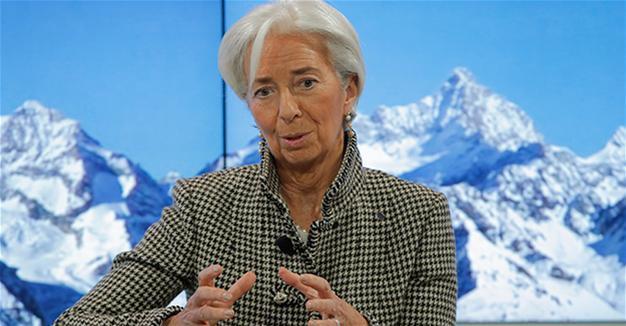IMF chief: Dealing with inequalities is key
DAVOS

AP photo
Christine Lagarde, managing director of the International Monetary Fund, said that dealing with inequalities will have to be a central element of leaders’ response to the concerns of populist movements, in a speech as quoted by the Associated Press on Jan. 18.Conceding that there is “no silver bullet response,” Lagarde said on a panel at the World Economic Forum that it’s time for “courageous” leaders to reconnect with the people.
She said that excessive inequality is “counterproductive” to sustainable growth, but that reversing globalization through more protectionism would be the wrong course.
Redistributing wealth will be a central part of any strategy to deal with the inequalities, as will a deep analysis of how new technologies affect jobs, she added.
Lagarde urged leaders not to “be resigned to taking the situation as it is.”
Earlier this week, the anti-poverty campaigning group Oxfam said eight men own as much wealth as half the global population.
Eight men own the same wealth as the poorest half of the world’s population, a level of inequality which “threatens to pull our societies apart,” Oxfam said on Jan. 16.
The wealth of the world’s poorest 3.6 billion people is the equivalent to the combined net worth of six American businessmen, one from Spain and another from Mexico.
Picked from Forbes’ billionaires list, they include Microsoft founder Bill Gates, Mark Zuckerberg who co-founded Facebook, and Jeff Bezos, founder of Amazon.
Oxfam pointed to a link between the vast gap between rich and poor and growing discontent with mainstream politics around the world.
“From Brexit to the success of Donald Trump’s presidential campaign, a worrying rise in racism and the widespread disillusionment with mainstream politics, there are increasing signs that more and more people in rich countries are no longer willing to tolerate the status quo,” Oxfam said in its new report, “An economy for the 99 percent,” as quoted by AFP.
The charity said new data on wealth distribution from countries such as India and China had prompted it to revise its own calculation, having said a year ago the wealth of half the world’s population was in the hands of 62 people.
















